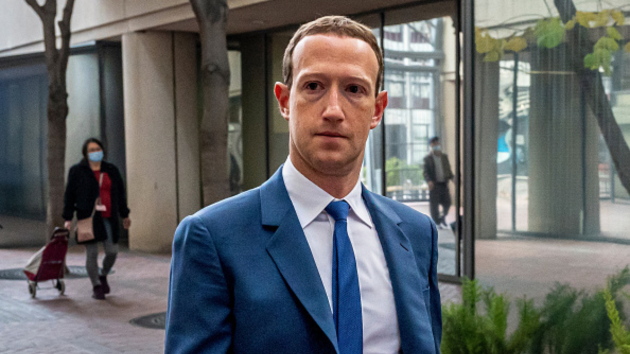Some California restaurants face stark realities, burdens after minimum wage increase
Written by ABC Audio ALL RIGHTS RESERVED on April 30, 2024
(NEW YORK) — It’s been nearly one month since California raised the minimum wage at certain restaurants, which has put a spotlight on a course correction that many see as long overdue.
But for some — and not just fast food franchise owners — the newly raised bar for compensation also marks a pivotal point for restaurants to remain competitive in an already difficult post-pandemic landscape. The industry with famously thin margins is once again being pushed to make monetary and operational adjustments to stay afloat, all without compromising consumer expectations.
Some customers have already felt the pinch of costs being passed onto them, as recently reported by the Wall Street Journal, which restaurant owners and executives at chains like Chipotle and McDonald’s warned could come as a result of the state voting to increase the minimum from $16 to $20 an hour at restaurant chains with at least 60 locations nationwide.
Market-research firm Dataessential provided ABC News with menu price analysis at 70 limited-service restaurants (LSR), which includes both fast-food and fast-casual chains, that showed California eateries have increased prices by 10% overall since September and has outpaced all other states.
“I know that we are course correcting from a minimum wage that hasn’t kept up with the cost of living index and has not kept up with inflation. The pendulum is swung to kind of make up for a lot of inactive and stagnation with wages. But for restaurants to be the first industry to bear the brunt of this is really tough,” Briana Valdez, founder and CEO of HomeState in Southern California, told ABC’s Good Morning America.
“Coming out of a time where restaurants, who were essential workers during the pandemic and fought so hard to keep their doors open and to keep teams employed, now have another major impact on our ability to keep our teams happy and to keep our doors open, and to continue to offer affordable options for our diners,” she continued. “It’s another massive challenge on the heels of just kind of getting our feet back on the ground.”
Valdez, who’s placed equity and wellbeing at the forefront of her business, first brought a taste of Texas food and hospitality to Hollywood, California with house-made flour tortillas, breakfast tacos, queso, and brisket back in 2013 and has since expanded to eight restaurant locations across Southern California with 350 employees.
While her restaurant group doesn’t meet the same volume as restaurants in the LSR category mandated in the new law, the daughter of first-generation Mexican American parents told GMA frankly that “$20 an hour now it’s not competitive — it’s just the starting point now for most restaurants that are competing for the same talent pool.”
“All things being equal,” she said thinking of potential applicants, “most people are going to apply for the job that has a higher rate, so you really start to compete directly with people who are mandated by [AB 1228] to have a $20 an hour starting wage — It drives everybody’s wages up.”
Valdez, who previously worked in fine dining at Thomas Keller’s Bouchon in Beverly Hills, opened “with a pooled house and that was groundbreaking at the time,” she said of the equitable pay structure that divides tips between the kitchen and service staff evenly.
On average last year, Valdez’s employees netted nearly $24 per hour, which is how she said they’ve “been able to stay competitive.” But since that can’t be listed as a starting wage due to tips, she’s had to get creative with how to present the overall work experience with appealing benefits “to make the work-life balance really healthy,” such as telehealth for $5 a paycheck that extends to employees’ families, pet insurance, family meal, and two days off in a row.
On top of the immediate public-facing challenges that come from this all-at-once financial change, restaurant owners are also left to juggle rising food costs and other variables in the supply chain that can greatly impact a restaurant’s overhead and bottom line.
“Our vendors are all under the same pressures that we are — they’re all fighting to keep their relationships intact with their restaurants — but their costs are all going up as well,” Valdez pointed out. “So as restaurants, we’re on the last end of all those commodities and markets that have come before us,” such as farmers, harvest labor, transit of crops, food storage, packing, and distribution.
“We’re being as transparent as we can because cost has gone up,” she continued, sharing for example that HomeState is “losing money every time we sell a brisket taco.”
Ultimately, Valdez said this culmination of increased costs for operators have to go somewhere: “It’s going to shift the landscape for the diner — we are going to see increased menu prices and that is just a byproduct of of this.”
Even Michaela Mendelsohn, who was appointed to Gov. Gavin Newsom’s Fast Food Council last fall before AB 1228 was signed into law, is seeing the immediate financial impact on her restaurants.
The CEO of Pollo West Corporation, one of the largest franchisees of the fast casual California restaurant chain El Pollo Loco, told GMA they preempted price raises in February before the minimum wage law took effect on April 1 to test the waters and “had a 3% decline in transactions.”
“It’s become really clear to us that our customers are [experiencing] sticker shock and price fatigue,” Mendelsohn said. “With inflation, we’ve had to increase too many times and it’s not the answer anymore or else we’ll just keep reducing our business to less and less people.”
“We quickly shifted from being profitable to losing money on April 1,” the former president of the El Pollo Loco Franchise Association of nine years said frankly. “We’re in a tough position right now where we’re pretty much having to accept the fact that we’re making no money for a while until we figure this out.”
To cut costs and stay afloat, Mendelsohn said their restaurants have had to reduce hours by roughly more than 10%, simplify menus, and implement new technologies such as automated ordering kiosks, which she explained can have a long learning curve for customers and hasn’t helped save any money in the short term.
“We’re also looking at the possibility of certain stores opening later or closing earlier — because those fringe hours are often not profitable. And now they’ve become that much less profit,” she added. “AI will be the next big step, we’ll be one of the test stores — to start testing automation in our drive thru,” but in the meantime an employee still needs to be on headset to monitor each transaction.
Mendelsohn, who’s owned El Pollo Loco franchises for 36 years, said this “is a throwback to the recession” when the business “had double digit declines for three years.”
“This was supposed to be something I was wanting to leave to my kids — but I’m not sure what’s gonna be left. I’m fighting to keep something there that’s valuable for them,” she said.
The mother of five and transgender activist who has worked closely with the California Legislature on an array of business policies, said, “I’m sad to say this law was so ill advised in my eyes and many others to have it just focus on 500,000 fast food workers, but there’s 40 million people that live in the state. When you just choose one industry, that’s a good size of the state but certainly just a small piece in the totality, why isn’t everybody getting $20 an hour and why isn’t it being done over a period of time so that everybody can adjust accordingly? I don’t see it as a solution.”
While it’s still too early to know how the wage increase has impacted specifics on hiring or staffing, according to a representative from the National Restaurant Association, tangible data will be available from the Bureau of Labor Statistics next month in the April jobs report which can help paint a clearer picture of the new law’s inaugural impact.
Copyright © 2024, ABC Audio. All rights reserved.






